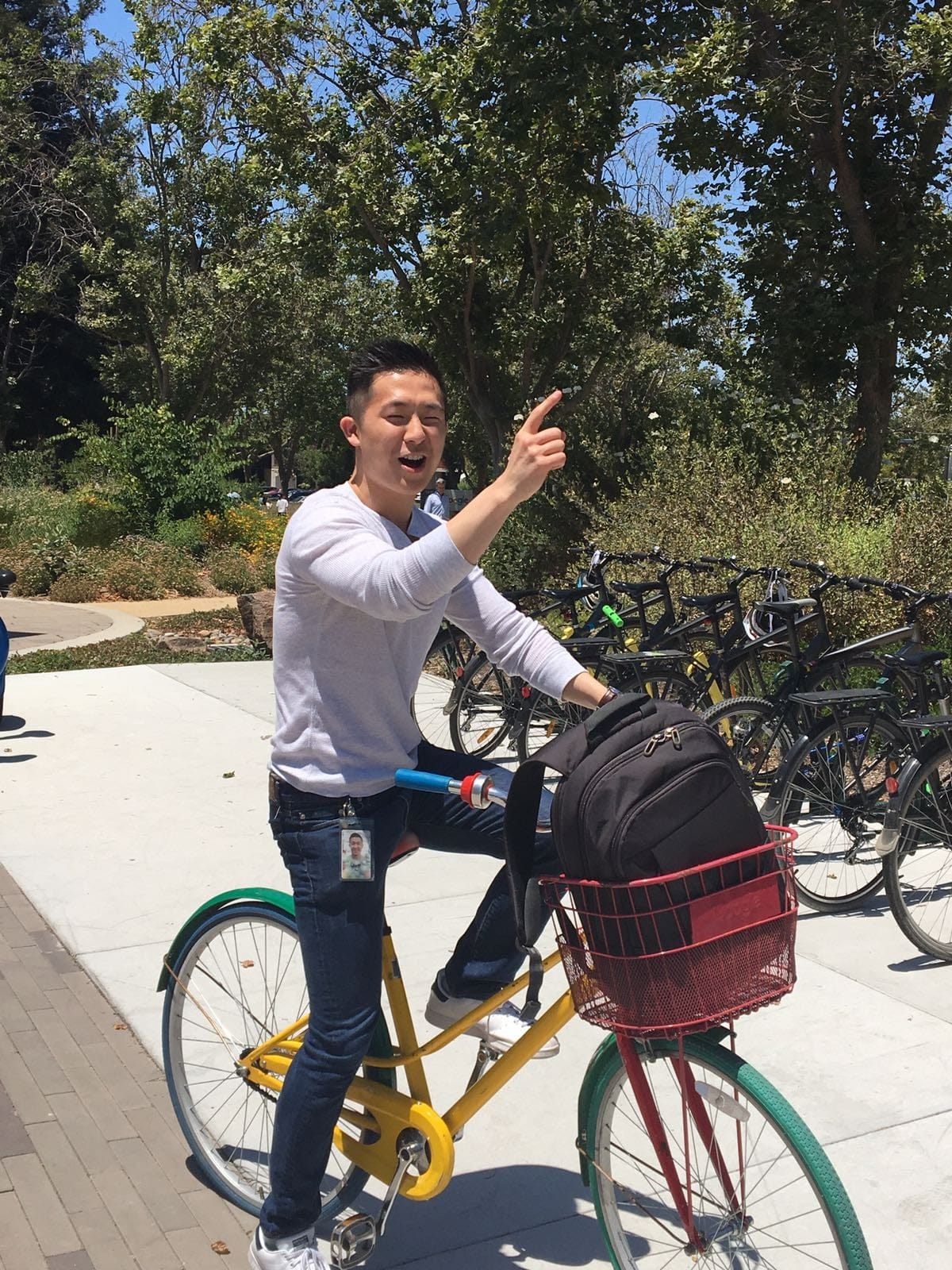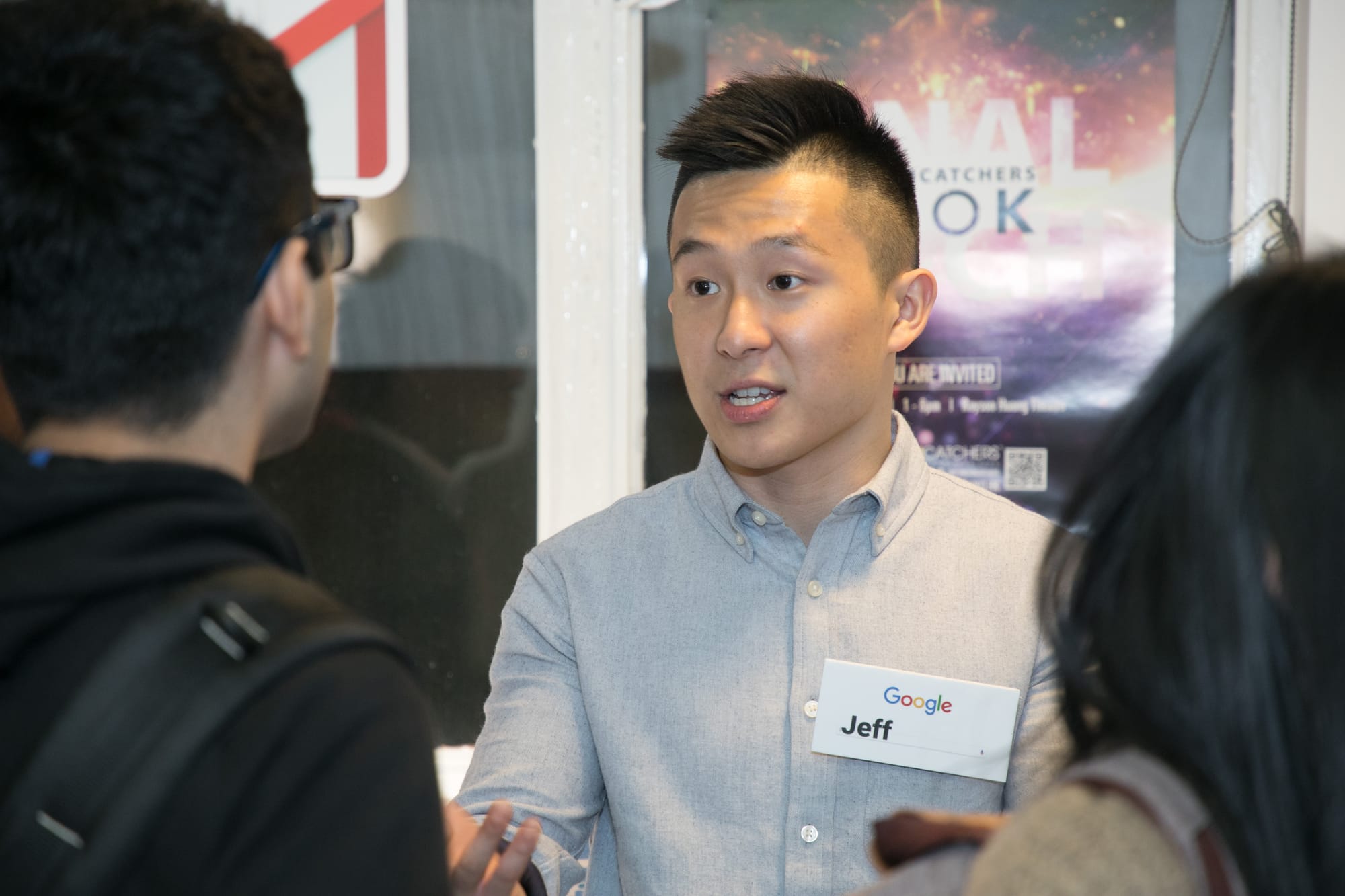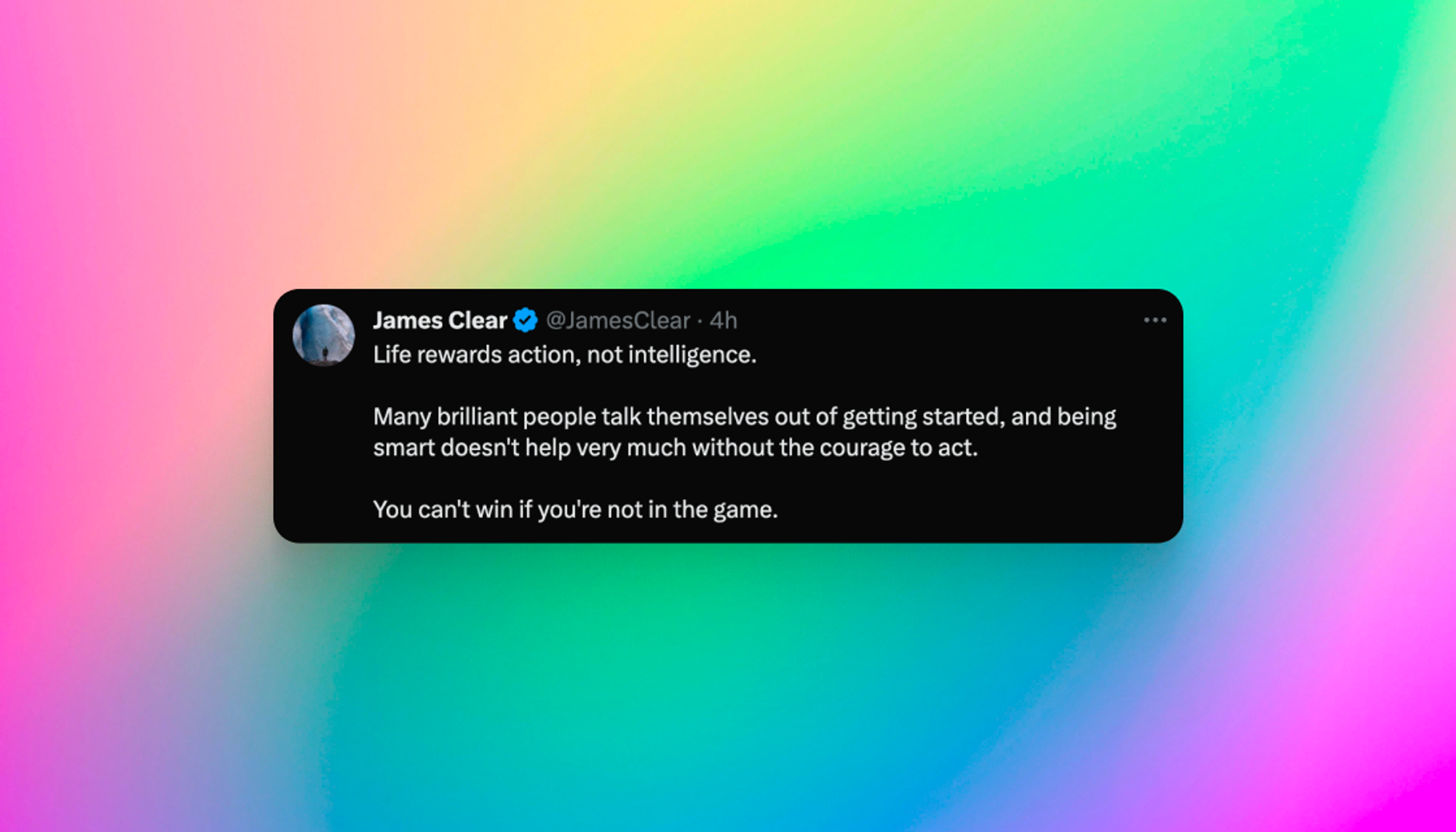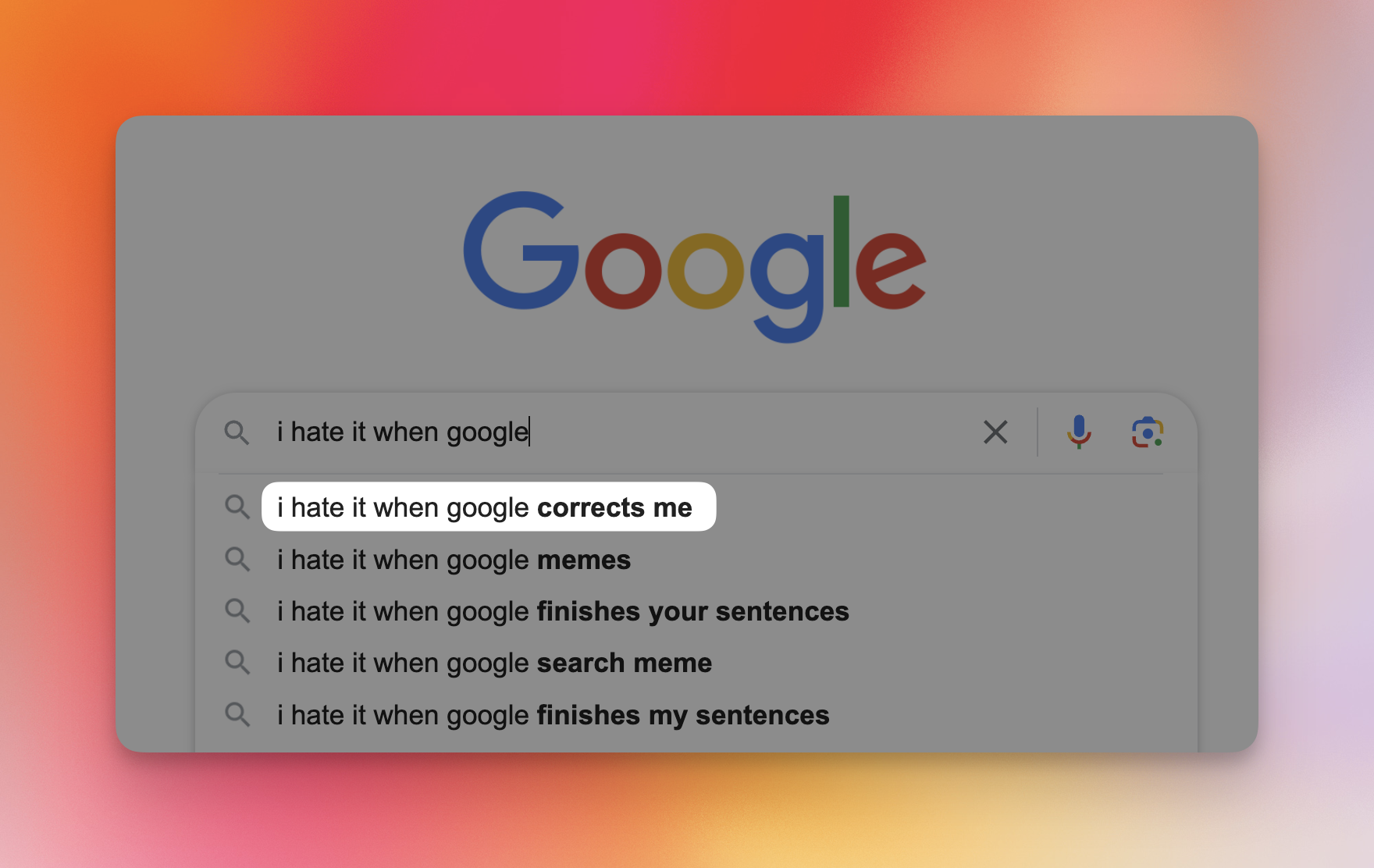8 Lessons from 8 Years at Google

Hi friends - July 4th, 2024 marks my 8th “Googleversary.”
I can't believe it's been eight years since I traded my soul for free meals and coffee. For those of you wondering whether it was worth it, I’d say…it really depends on how much coffee you drink 😉.
In honor of my 8th year of not being fired, I've compiled 8 lessons – one for each year I've somehow survived at Google.
Let’s dive right in!
Resources
- Download the templates I use at work (for free)!
The Job isn’t “Mission-critical” But Your Personal Brand Is
Why are you stressing about the formatting? It doesn’t even matter.
Let me be clear: Most of us aren't saving lives at work (unless you're a doctor, in which case, carry on) and it’s rarely the end of the world if an email is sent at 9:30AM on a Monday instead of 5:30PM the Friday prior.
At the same time, our personal reputations extend far beyond our current roles and a strong personal brand is a sure-fire way to unlock future opportunities.
My sales teammates found it amusing how I would always format a spreadsheet a certain way ("Jeff you know no-one really cares when you use conditional formatting right?") but it was this same attention to detail that landed me my current role in the Product Marketing team.
So, don't let anyone tell you that your effort is "over the top" and that you’re taking your job "too seriously." Embrace your quirks, your strengths, and your unique way of doing things. It's what makes you, well, you.
"When people say you’re a person of good character, they mean you’re not just good, but consistently so. You’re defined by what you do repeatedly. Your habits create your character." - Derek Sivers

Hierarchy isn’t Inherently Bad
"We need to have hierarchy in how we make decisions, but we should never have hierarchy in how we treat people." - Laszlo Bock
My most frustrating experiences at Google were with projects that lacked clear leadership and decision-making authority.
Everyone was so busy being "Googley" (read: avoiding conflict) that as a result, these projects got bogged down by endless discussions and a fear of taking charge.
Hierarchy isn't about power trips or micromanagement. It's about establishing clear roles, empowering leaders, and creating a framework for efficient decision-making.
The best initiatives I’ve worked on had project managers who:
- Defined clear roles and responsibilities for each team member.
- Designated a decision-maker for each work stream and task.
- Fostered open communication and encouraged respectful dissent (by over-preparing as the meeting facilitator and asking thoughtful questions).
How to Say “No” (as a people-pleaser)
Saying "no" has always been my kryptonite. Years of insecurity as a chubby and awkward teenager turned me into a chronic people-pleaser, always prioritizing others' needs over my own.

Google's "helpful" culture only amplified this struggle, making it even harder to find a balance between always trying to "be a helpful colleague" and protecting my own well-being.
I was drowning in a sea of "small favors" until I witnessed a mentor of mine gracefully decline multiple requests without garnering any ill-will.
His secret? Instead of flat-out rejecting the request, he would say:
- "No, but [insert resource I found that will help with your request]"
Now, when I'm bombarded with questions, I point people to a FAQ document. When asked to write a project recap, I share my template. And if someone wants me to repeat a workshop, I hand over my slides and speaker notes.
It's not about being selfish; it's about being strategic. By saying "no, but…", I protect my time and energy while still maintaining a reputation for being collaborative and supportive.
Google Isn't Forever, But Your Network Is
First up, I have to admit this is more of a regret than a learning because I learned this lesson way too late, and it’s something my younger self could have (and should have) taken advantage of.
Long story short, when I was in the sales team, I made it a point to "just" have a professional relationship with my clients and I never bothered to really socialize with them outside of my professional obligations.
I self-rationalized by telling myself:
- "I shouldn’t use my title at Google to build up a network. That’s just wrong!"
But in reality, I was just lazy. It was so much extra work to keep track of clients’ personal lives and to engage in meaningful (read: non-revenue related) small talk.
What a short-sighted idiot I was.
In the past 8 years, I watched countless ex-colleagues who had invested in building genuine relationships with people outside of Google move onto amazing opportunities thanks to their extensive networks.
Does it "sound bad" to leverage your title and role at Google for networking purposes? Sure.
Does it lead to a long-term payoff? Definitely.

Execution Beats Strategy. Every time.
"Coca-cola loved our idea but said, “We don’t buy PowerPoints. If you can find an existing company with a proven track record, and you show us you can market it, we’d love to do business with you.”
We worked on it for 2 years and that’s how Coca-cola ended up buying ZECO Coconut Water." - Jesse Itzler
Execution beats strategy every. single. time.
The reason is simple: The world is full of people with great ideas, but few do the hard work to make them happen.
Back when I was in sales the global team rolled out a new CRM (Customer Relationship Management) tool, which was an excellent idea on paper.
It was designed to automate most of the sellers' manual data entry tasks, and the team responsible for this update projected millions of hours in time-savings.
The rollout ended up being a complete disaster: the trainers hadn't used the tool, important features were missing, and manual work actually increased to compensate for the incomplete functionality.
Now, when I see a grand plan without clear execution steps, I find it easiest (and most polite) to simply say, “Sorry it might just be me but I’m having a hard time with the tactical implications. Could I trouble you to walk through some of the key steps needed to achieve this?”
"Execution beats strategy every time. If you had a crystal ball that could tell you the exact industry-disrupting new idea to build, but your end product is slow and buggy compared to the competition, you will still lose the game." - Julie Zhuo

The Best Mentors Are Just 1 Step Ahead of Us
Google has an open-door policy allowing Googlers to meet with senior leadership, which is a great policy in theory (and does indeed promote a more open company culture).
But in reality, this practice rarely leads to actionable and relatable advice since those at the top have forgotten what it’s like to be in the trenches; their daily struggles are not ours.
Instead, I found the best mentors to be those who are just 1 step ahead of me on the career ladder.
These folks are still close enough to remember the challenges I’m facing, the questions I’m asking, and the mistakes I’m making. They offer practical advice, share relatable experiences, and are well-positioned to pull us up that next rung.
Of course, it’s never a bad thing to get more face time with leadership (especially if you have valuable insights to share from the frontlines - they love that) but to make even more out of that interaction, I recommend asking them to connect you with potential mentors who are far enough to lend a hand, but close enough to remember the climb.
Doing Good Work Just Isn’t Good Enough

Let’s rip the bandaid right off for this one: Hard work alone isn’t enough, you need to showcase your efforts.
Although I observed this phenomenon as soon as I joined Google, it took me a long time to accept the reality that doing a great job alone isn’t enough to get noticed and promoted in larger corporations.
Looking back, it was like being delusional about a toxic relationship, "Oh that won’t happen to me, I’m the exception to the rule. I’m sure my work will speak for itself."
In real life, managers are consumed with their own priorities and rarely have the bandwidth to spot everyone's contributions. To be seen and considered for advancement, I had to openly communicate my successes.
Of course, it’s important to avoid coming across as a braggart. The best strategy I found was to always give credit. For example, I’d say, "I achieved this great result thanks to insights from Jonathan."
Additionally, I would share an executive summary of what worked and what didn’t when discussing my achievements ("My campaign was successful and this is what others can do to replicate that success.")
At a bare minimum, I suggest everyone log their quarterly wins in a document or spreadsheet somewhere and share them with their manager during 1:1s.
There is No Work-Life Balance (if you’re ambitious)
"You can have everything. Just not everything at once." - Professor Scott Galloway
No senior leader at Google would ever admit this openly (it would be career suicide), but in my experience, those who have risen the fastest and achieved the most success in the traditional sense are the ones who chose to prioritize their work early in their careers.

That being said, I want to be extremely clear:
- There is absolutely nothing wrong with prioritizing your personal life (or work, for that matter). It’s crucial to understand that it’s all about tradeoffs - you just can’t have it both ways.
Just like Daniel Priestley says in his bestseller “Oversubscribed” -
Each one of us has an unconscious hierarchy of values - the ranked order of things we place importance on. No one is necessarily right or wrong about the things that matter to them but everyone is different.
The implication here is slightly depressing, but I would have appreciated someone telling me this straight-up when I first got a job:
- Climbing the career ladder (quickly) isn't just about working hard - everyone works hard. It's about saying no to the fun stuff. It's about missing parties, declining trips, and sometimes even disappointing your loved ones.
This unfortunate reality "works" due to the simple reason that most of your peers are unwilling to sacrifice short-term gratification for long-term gain.
The only silver lining? I can confidently tell you that the sacrifice is temporary but the payoff is forever.
Wrapping up
Well, I really hope this post doesn't get me into trouble.
I should have probably stated somewhere that the last 8 years at Google have been nothing short of transformative and it’s been the best 8 years of my adult life (I’m serious, please believe me 😅).
These lessons I’ve learned have also extended far beyond the workplace, and I hope sharing these experiences helps you navigate your own path with a bit more clarity and confidence.
Finally, I can’t end this post without a Google-related meme, so here you go:

Want to see more (or less) of this? Tap the thumbs up or down to let me know ⬇️
Want someone to be more productive? Let them subscribe here 😉
Thanks for being a subscriber, and have a great one!